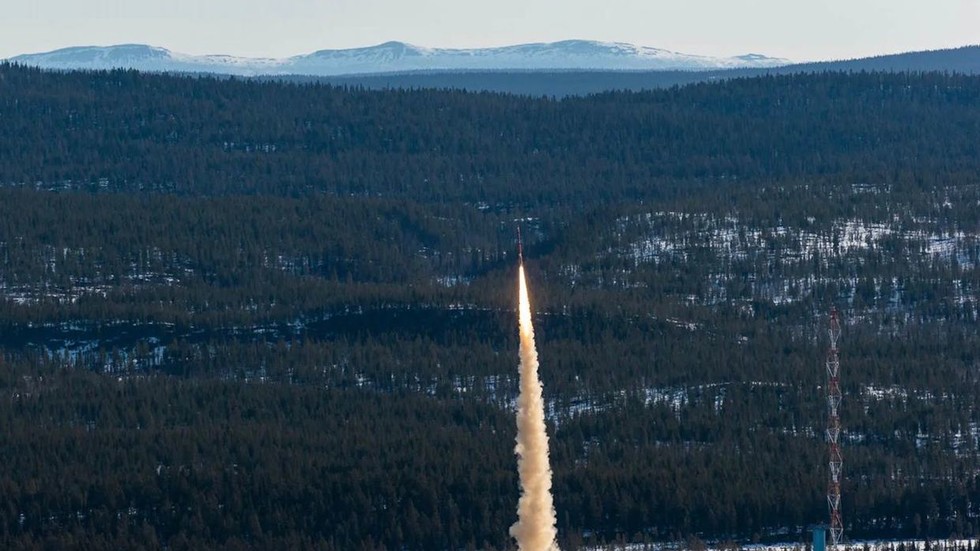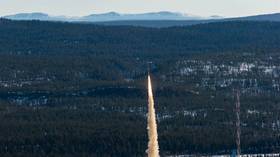
A Swedish research rocket has malfunctioned and landed in Norway

A microgravity research rocket launched from Esrange Space Center © SSC
A rocket launched by the Sweden Space Corporation (SSC) deviated from its course and landed in the mountains of neighboring Norway, the Swedish authorities confirmed on Tuesday. The rocket’s payload was recovered and transported back to the Swedish launch site. No injuries were reported, and an investigation is ongoing.
The TEXUS-58 rocket blasted off from the Esrange Space Center in northern Sweden on Monday morning. It “took a slightly longer and more westerly trajectory than expected and landed after completed flight 15 kilometers into Norway,” about 40 kilometers northwest of the planned landing site, the SSC said in a statement.
“It landed in the mountains at 1,000 meters altitude, and ten kilometers from the closest settlement,” SSC spokesman Philip Ohlsson told Reuters.
The SSC said that it contacted the Swedish and Norwegian authorities “shortly after landing.” The research payload has since been recovered, and flown back to Esrange by helicopter. The “technical details around the non-nominal flight path” are now being investigated.
“This is a deviation that we take seriously. We are now investigating the reason why the rocket flew further northwest than nominal,” said Marko Kohberg, head of rocket and balloon operations at Esrange, adding that it’s too early to speculate.
The rocket was part of a program commissioned by the European Space Agency (ESA), and flew to the altitude of 250 kilometers with three microgravity experiments on board. Two of the experiments, VIPer and Perwaves, are related to “green transition” research, while the third, dubbed ICAPS, investigated the process of planetary formation.




